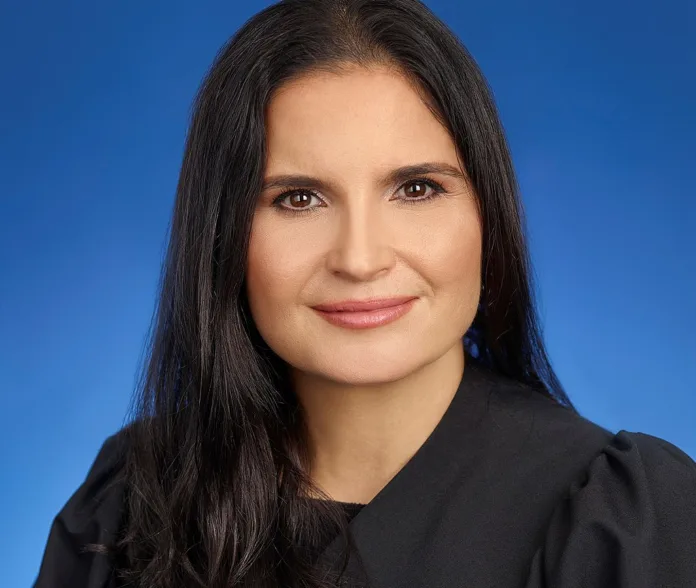Judge Cannon raises concerns over the funding of special counsel Jack Smith’s investigation, while prosecutors push for a gag order against Trump
During a two-hour hearing on Monday morning, U.S. District Judge Aileen Cannon, who is overseeing former President Donald Trump’s classified documents case, scrutinized the government attorneys about the funding of Special Counsel Jack Smith’s investigation. The judge voiced concerns about the funding, citing potential “separation of powers” issues.
This hearing followed a session on Friday where Trump’s defence team sought to have the case dismissed, arguing that Smith’s appointment as special counsel was unlawful. Trump, who pleaded not guilty last year to 40 criminal counts related to mishandling classified materials after leaving office, has repeatedly denounced the probe as a political witch hunt.
Embed from Getty ImagesDefense lawyer Emil Bove contended that the funding for Smith’s office was unconstitutional due to its reliance on a “permanent indefinite appropriation” outside the normal budget process. Judge Cannon inquired whether there was any cap on the funding, to which Bove responded negatively, emphasizing the lack of oversight on the budget.
Throughout the hearing, Smith sat nearby, occasionally taking notes. Judge Cannon, at times sceptical of Bove’s arguments, accused him of a “flip flop” regarding his stance on the independence of the special counsel’s office. Despite this, she pressed Assistant Special Counsel James Pearce about the budget.
“When it’s limitless, I think there is a separation of powers concern,” Cannon remarked. Pearce defended the current funding structure, noting that the last eight special counsels had operated under the same system. He assured the court that the Department of Justice (DOJ) would fund Smith’s case through its budget if necessary, asserting that this change would not impact the case.
Bove, however, argued that DOJ funding would provoke a strong political response and additional motions from the defence. He remained sceptical that the funding change would resolve the constitutional concerns raised.
Judge Cannon clarified that her comments were exploratory, stating, “I am not indicating anything. I am just trying to cover the scope of what has been briefed here.”
In the afternoon session, arguments were heard regarding a proposed gag order on Trump to prevent statements that might endanger law enforcement. Previewing his stance, Bove described the gag order as an “extraordinary effort to gag [Trump’s] ability to speak at a debate and the campaign trail.”
Analysis:
Political: The scrutiny over the funding of Special Counsel Jack Smith’s investigation highlights potential conflicts between the executive and judicial branches. The defence’s argument that the funding structure is unconstitutional could lead to significant political repercussions, especially if the DOJ alters its funding approach. This debate underscores the delicate balance of power and the complexities of maintaining an independent investigation in politically charged cases.
Social: The case against Trump and the ensuing legal battles continue to polarize public opinion. Supporters of Trump see the probe as a political attack, while others view it as a necessary step in upholding the rule of law. The potential gag order also raises concerns about freedom of speech, especially in the context of Trump’s campaign and public discourse.
Racial: Racial dynamics are less pronounced in this specific case, but the broader context of how justice is administered can influence perceptions of fairness and equality under the law. The treatment of high-profile individuals like Trump compared to less prominent figures often becomes a point of contention in discussions about systemic bias and justice.
Gender: Gender issues do not prominently feature in this case. However, the legal proceedings and public perceptions can be influenced by the broader societal norms and expectations regarding the behaviour and treatment of individuals involved in high-stakes legal battles.
Economical: The funding debate touches on the broader issue of government spending and accountability. Questions about the allocation of funds for special investigations can influence public opinion on fiscal responsibility and transparency. The economic implications of prolonged legal battles also include the cost to taxpayers and the potential diversion of resources from other pressing needs.
